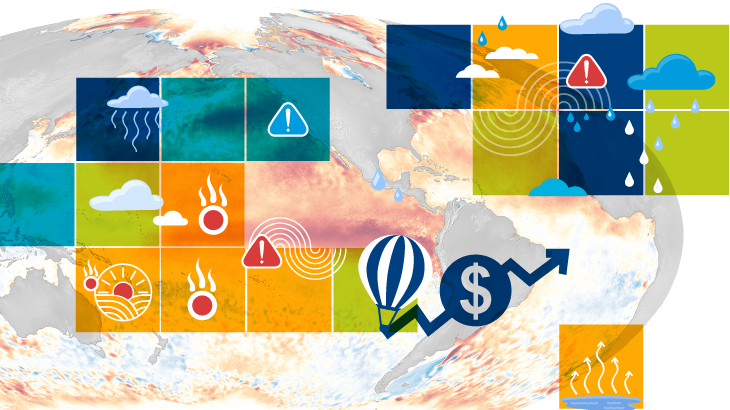
The most recent
This paper examines the macroeconomic impacts of adverse weather shocks on the Colombian economy, with a specific focus on agricultural output, food prices, and headline inflation. Drawing on empirical evidence from events such as the 2015–2016 El Niño, we document that these shocks tend to reduce agricultural output and increase inflation while having a limited effect on aggregate GDP growth.
Motivated by these stylized facts, we develop a small open economy New Keynesian model for Colombia that introduces a mechanism in which weather shocks alter the relative prices of agricultural and non-agricultural goods. This framework allows us to capture the inflationary pressures induced by adverse climate events in a structural setting. Under our proposed calibration, food inflation, headline inflation, and inflation expectations rise in response to the shock, prompting the monetary authority to raise the interest rate to anchor inflation expectations.
When weather shocks are persistent —as in the extreme scenario— they generate more lasting inflationary pressures that justify more restrictive monetary policy responses, albeit with higher costs in terms of economic activity.


 Sara Naranjo-Saldarriagaa,
Sara Naranjo-Saldarriagaa,  Jonathan Muñoz-Martíneza
Jonathan Muñoz-Martíneza